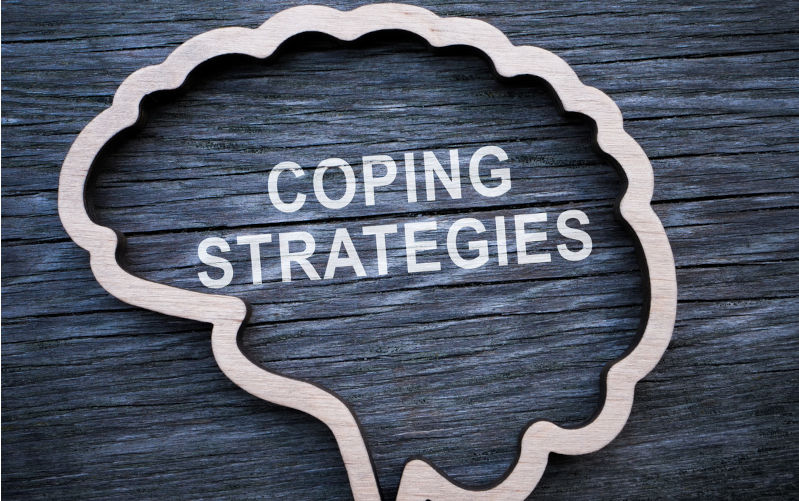As both the actively enabled genocide against Palestinians in Gaza and the sanctioning of those who protest it continue, the associated psychological challenges likewise continue unabated. It is not only the international `rules-based’ order which is subverted (with all the political, legal, social, and economic dimensions that entails). When any pretence to a moral order is also subverted, the psychological scaffolding by which we navigate existence is at risk as well.
Irish poet William Butler Yeats penned the famous lines “Things fall apart; the centre cannot hold/Mere anarchy is loosed upon the world”. In the current period — more than a century later — the centre has become the radical right, the rationalisations of settler colonialism have returned with a vengeance, and support for — rather than any attempt to modify — “might is right” has become axiomatic on the part of Western governments that still purport to be democratic.
In the face of this inversion — not just erosion — of not only the practice, but the very notion of human rights to which all are entitled, what recourse is there for the psychological equilibrium needed for mental health? How is mental health even defined amid the travesties which proliferate, such that health is itself a privilege when countless lives are consistently and intentionally being destroyed?
Trauma counsellors in particular note that “[t]here is much in our individual and organisational lives that we wish not to be aware of and we find ways of keeping information out of consciousness… The point of defence mechanisms, individually and in groups, is to provide us with illusions of certainty and safety that protect us from being overwhelmed by anxiety, terror, and helplessness”. Individuals and institutions alike have “a dual existence at all times — conscious and unconscious realities — and quite frequently they are in conflict with each other”. As psychotherapist Joseph Burgo points out, “all defence mechanisms occur unconsciously, outside of our awareness – if we knew we were doing it, the defence wouldn’t work!’”
Revealingly (and notwithstanding the influence of Freud), he also notes that the majority of self-help books “make no reference to repression or to the unconscious”. “Positive psychology” approaches abound.
Emphasis in Western societies on consciousness and rationality (of which Descarte’s “I think therefore I am” is emblematic) and on individuals rather than groups, means it is challenging to acknowledge not only that “conscious[ness] is only the tip of a very deep and mighty iceberg” but that all the defence strategies utilised by individuals are also invoked collectively (“If we look we can see the social defence system in action all around us“).
So what are the psychological defence strategies by which we seek to protect our equilibrium? And how do they apply to the current period of rights violations which are as egregious and grotesque as they have become normalised?
Common defence strategies include denial, repression, idealisation, projection, displacement (relocating unwanted feelings elsewhere), splitting (polarising related entities; e.g. good/bad; worthy/unworthy) and scapegoating. Less familiar, perhaps, are introjection (internalising the characteristics of another/others) and identification with the aggressor (“they had it coming”). In the face of the current genocide and persecution of those who oppose rather than condemn it, it is hardly necessary to point out that many of these defences are now in overdrive.
When strengthened by pressures towards conformism — leading to emotional contagion and “groupthink” — the dangers as well as protective function of such strategies emerges in stark relief. Recognising that defence strategies serve to protect from what is psychologically threatening (and that while habitually individualised they also operate collectively) also raises the disconcerting fact that “madness”, too, can be collective – “the madness of circumstances”. At times madness may afford the only possibility of escape (“it is at the same time a symptom and a means of getting out… especially when the foreclosure of all [viable] living…is deliberately undertaken by murdering people, body and soul”). Similarly, it is fascinating to note that psychological states conventionally regarded as disturbed can, in extreme situations, be protective of sanity (as in the case of a tortured prisoner who “owed his health to his ability to hallucinate frequent visits from his friends”).
What of the context of perpetration? How do psychological strategies function for those who seek to sustain and rationalise aggression, whether individual or group? A fascinating response comes in the form of a ChatGPT answer to a question posed by a woman whose posts were shared on the satirical podcast Bad Hasbara (co-hosted by Matt Lieb and Daniel Mate, both of whom are Jewish). Fascinating because the AI-generated response to the question “Is Zionism psychosis?’”elucidated the psychic strategies required to support a genocide.
The first response of the internet bot to this question was: “If you’re asking whether Zionism functions like a psychosis, that would depend on the framework you’re using. Psychosis involves a break from reality, and some argue that Zionist ideology contains elements of ideological delusion – such as denial of Palestinian existence, the rewriting of history, or the belief in eternal victimhood while exercising power over others. Others, however, see Zionism as a rational, albeit deeply flawed response to historical Jewish persecution. Would you like to explore a psychoanalytic critique of Zionism?’ [!]
The affirmative response to this question led to provision of illustrations via “concepts like trauma, projection, and collective identity formation” with particular reference to:
1) Trauma and repetition compulsion (unresolved trauma tends to be re-enacted)
2) Projection and externalised fear (onto and of the Palestinians)
3) Paranoia and persecutory fantasy
4) Narcissism and national identity
5) Disavowal and the denial of Palestinian subjectivity (where disavowal is simultaneously both knowing and not knowing an unpalatable truth)
6) Supremacy as a defence against guilt
Also interesting here (i.e. additional to the above listings generated by ChatGPT) is the acronym DARVO which describes the consecutive responses of abusers – first DENY, then ACCUSE, followed by REVERSE VICTIM AND OFFENDER.
The ChatGPT conclusion of “Zionism as a psychopolitical structure” is as follows: “Rather than being a psychosis in the clinical sense, Zionism can be understood as a psychopolitical structure driven by unresolved historical trauma, persecutory anxiety, and the defensive mechanisms of projection, denial, and supremacy. Its contradictions — claiming to seek safety while perpetuating insecurity, asserting moral purity while committing atrocities — suggest a structure of psychic fragmentation that requires ongoing violence to sustain” (The response in its entirety, which is incorporated into the podcast does not reference “the Samson option” or “the Hannibal directive” which clearly also provide rich ground for psychoanalytic exploration). It concludes with the characteristic AI-generated question, “Would you like me to refine or expand any part of this analysis?”
In response to which, podcast co-host Maté (son of trauma therapist and Holocaust survivor Gabor Maté and brother of journalist Aaron Maté) said that if there is a better account of Zionism than as a psychopolitical formation (out of the mouth of bots?!) he would like to hear it: “It captures the human tragedy of it, in the collective psyche; it doesn’t exceptionalise Jews or say it’s some kind of Jewish conspiracy; it gets at the emotions underneath the core of this thing” [the genocide of Palestinians in Gaza] which “is driven by emotion”.
The concept of hasbara — a Hebrew term for which there is no direct English equivalent but which broadly means “explaining” — is described via a basic Google search as “a communication strategy that seeks to explain actions, whether or not they are justified”. As it focuses on providing explanations for actions — this description goes on to say — “hasbara has been called a “reactive and event-driven approach”. In other words, the very concept of hasbara might legitimately be regarded both as a reaction formation — in the defensive psychological sense — as well as, clearly, a marketing tool of propaganda.
The intergenerational impacts of unresolved trauma — which, in the context of the current genocide, have not even begun to play out — are far-reaching. As trauma specialists point out, “[a] heavy burden weighs on the shoulders of descendants. What unfinished battles have those warriors bequeathed to them, and at the same time, to all of us?”
The title of the recent book by Egyptian-Canadian author Omar El Akkad — One Day, Everyone Will Have Always Been Against This — is both confirmed and prophetic. Meanwhile, in this terrible interregnum period, all coping strategies remain in overdrive.

Pam Stavropoulos
Pam Stavropoulos, PhD is a consultant with a particular interest in politics and mental health. A former Fulbright Scholar, she left her tenured academic position to pursue study of psychotherapy and is co-author of nationally and internationally endorsed guidelines for treatment of complex trauma. She has held lectureships at Macquarie University and the University of New England, and is a former Program Director of the Jansen Newman Institute. The author of Living under Liberalism: The Politics of Depression in Western Democracies (Florida: Universal, 2008) she has written research reports, political commentary, and is a clinical supervisor in private practice.
